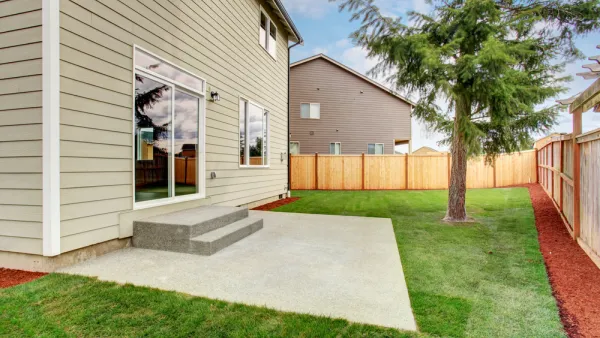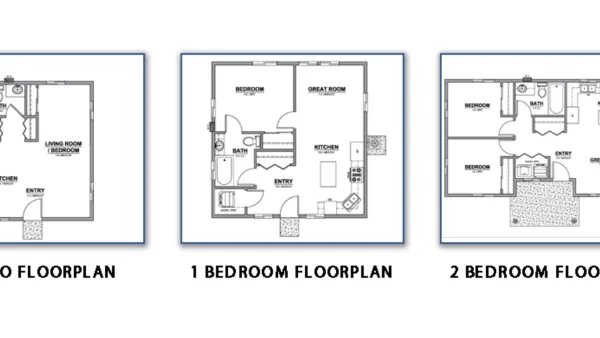Maine could become the third state to eliminate single-family-only zoning to encourage light density increases in residential areas and make it easier for homeowners to build accessory dwelling units.

The Maine state legislature is one step closer to passing a bill legalizing duplexes, accessory dwelling units, and other “missing middle housing” types in neighborhoods previously zoned for single-family homes. As Christian Britschgi writes, the state is following the example of California and Oregon, which have both eliminated single-family only zoning and, in the case of California, established housing production goals.
“The measure has attracted bipartisan support, reflecting a growing consensus that local governments' zoning regulations are making housing unaffordable and that state preemption of those regulations is one means of bringing housing costs down and returning rights to property owners,” Britschgi says.
Maine's legislation would require municipalities to allow two-unit homes everywhere that single-family homes are allowed today, and to allow four-unit homes in designated growth areas. The bill would also guarantee homeowners the right to build accessory dwelling units (ADUs)—sometimes known as granny flats or in-law suites—on their single-family properties.
The bill would allow localities to limit ADU size, but ban them from requiring additional on-site parking. “The bill also eases density restrictions and parking requirements for deed-restricted affordable housing in multifamily-zoned areas. Provided they offer units for rent or sale at specific below-market rates, these developments can be built at 2.5 times the density of whatever the multifamily zone already allows.”
Critics of the bill say taking control away from local leaders could lead to overdevelopment and strained infrastructure and local services. Some also point out the nebulous and shifting definition of “affirmatively furthering fair housing.”
Others question whether the legislation would have any impact at all—California’s early experience does not exactly inspire confidence, although the state is taking steps to make ADU construction cheaper and more feasible for more property owners. According to Britschgi, allowing localities to set rules for ADUs “opens the door to localities setting up lengthy, discretionary approval processes that discourage people from actually building them.”
FULL STORY: Maine Could Be the Third State To End Single-Family-Only Zoning

National Parks Layoffs Will Cause Communities to Lose Billions
Thousands of essential park workers were laid off this week, just before the busy spring break season.

Retro-silient?: America’s First “Eco-burb,” The Woodlands Turns 50
A master-planned community north of Houston offers lessons on green infrastructure and resilient design, but falls short of its founder’s lofty affordability and walkability goals.

Delivering for America Plan Will Downgrade Mail Service in at Least 49.5 Percent of Zip Codes
Republican and Democrat lawmakers criticize the plan for its disproportionate negative impact on rural communities.

Test News Post 1
This is a summary

Test News Headline 46
Test for the image on the front page.

Balancing Bombs and Butterflies: How the National Guard Protects a Rare Species
The National Guard at Fort Indiantown Gap uses GIS technology and land management strategies to balance military training with conservation efforts, ensuring the survival of the rare eastern regal fritillary butterfly.
Urban Design for Planners 1: Software Tools
This six-course series explores essential urban design concepts using open source software and equips planners with the tools they need to participate fully in the urban design process.
Planning for Universal Design
Learn the tools for implementing Universal Design in planning regulations.
EMC Planning Group, Inc.
Planetizen
Planetizen
Mpact (formerly Rail~Volution)
Great Falls Development Authority, Inc.
HUDs Office of Policy Development and Research
NYU Wagner Graduate School of Public Service





























